Your Complete Guide to House Edge
Once you’ve spent some time reading up about casinos and gaming, you’ll probably be familiar with the term “house edge”. It crops up a lot when discussing the odds of winning games – but what does it really mean?
Fortunately, Ladylucks I’ve got you covered, so when you play our fantastic games, you’ll know exactly what it means.
House edge explained
Every bet you make in a casino has a certain chance of winning, and the odds involved will determine how high or low your pay-out is. With the exceptions of Blackjack and Video Poker, every casino game has a built-in buffer which goes to the house. The difference between the true odds and the odds the casino is offering you is the house edge.
The house edge is usually expressed as a percentage, which represents how much of a player’s original bet the house will keep as profit. A house edge of 10% would mean the house keeps that much of your money: if you bet £100 over the course of a night on the same game, you’d expect to walk out with £90.
How to work out the odds
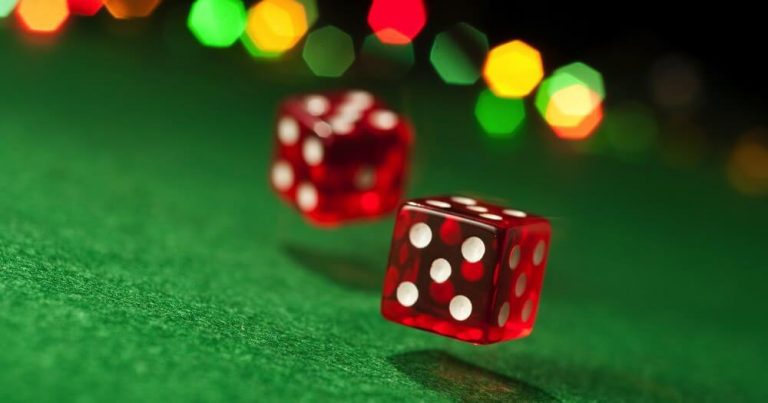
Imagine betting on the roll of one dice. Each value, from 1 up to 6, is equally likely to happen, and there are 6 possible outcomes. If you bet £1 on each result using true odds, you’d get £6 back.
However, offering bets at true odds means the casino has no certain profit. Instead, each value might have odds of 4 to 1: so, placing the same bet of £1 on each result would get you your original £1 back, plus the £4 win, for a total of £5 back. To find the true odds, take the difference between the true odds and the offered odds and divide that by the true odds.
In the dice scenario, this gives a house edge of 1/6 or 16.7% – pretty high. In contrast, a European roulette wheel has 37 numbers but offers odds of 35 to 1. If you bet on all of the 37 numbers – including the zero – you’d get back £36, which comes out as a house edge of 2.7%.
Can you beat house edge?
Depending on the games you play, house edge can be higher or lower. Even games that rely on skill usually have a house edge: Vegas rules blackjack has variable odds, but it’s around 0.28% if you play it perfectly by memorising card charts. (The house edge is lower, or even favourable to players if you card count, but casinos will often kick you out for doing this.)
Keno has the highest house edge of common casino games, coming in at 25-29 percent. It’s one to avoid if you want to keep your hard-earned cash, even though it’s pretty easy to pick up how to play.
The safest way to beat the system is to quit whenever you get lucky. The longer you spend playing any game, the more likely it is that the house edge will return and even out your winnings. So, the best thing to do is to pack up.
What if the game is due to win?
There’s a very prevalent idea that, if something has happened a lot, it becomes less likely to happen in the future; or, that if something has not happened much, it will therefore seem to be more likely to happen.
Think of a roulette wheel again: if it’s landed on red the last nine spins, you might instinctively think it’s likely to land on black next time round.
This is known, appropriately, as the ‘Gambler’s Fallacy’. Don’t let it fool you.
The reason it seems logical is that, at the start of those nine spins, it would be very unlikely for the wheel to land on red every single time. Assuming it had odds of 18/36 (rather than 18/37), it would be 1 in 2 for the first spin to land on red; 1 in 4 for the first two; 1 in 8 for the next one; 1 in 16 for the one after that; and so on. So after a while, it seems less and less likely that the wheel will continue to land on red.
However, each of these spins itself still has a 50 percent chance of landing on red. The only reason the odds increase is because they are being viewed as a set rather than on a spin-by-spin basis.
Previous results do not impact future results: it might be fun to speculate about what happens next but there’s no such thing as “due a win”. And remember that the house edge is still there too: even when it seems like a 50 percent chance, the odds to win aren’t actually quite that good.
Games with a low house edge
The games you’re most likely to win on are the ones with a low house edge – though these may require a high degree of skill or knowledge to win.
Sometimes house edge can even vary among the same game: different slot machines in the same venue could be set as anything from about 2 percent, all the way up to 20 percent. And betting higher denominations in these machines can also sometimes trigger lower house edges, resulting in a better chance of winning big.
Baccarat is an exception: it’s fairly easy to learn, and the house edge is also small. Betting on the player is 1.2 percent, which betting on the banker is an edge of 1 percent. Just make sure to avoid more exciting bets: betting on a tie has an edge of 14 percent, and pairs are up there too with an edge of 10-11 percent (depending on the number of decks used). And we’ve already mentioned Blackjack too.
Video poker has probably the lowest edge of any game, though it is also very tricky. When playing perfectly, on a machine with the best return for a perfect play, and in optimum conditions, it can be theoretically possible to produce a positive player edge – but there’s a lot of ifs in there.
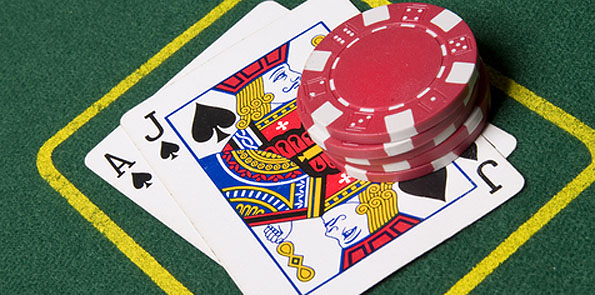
Real casinos vs virtual casinos
Many online gaming sites have a lower house edge than actual brick-and-mortar casinos. So, virtual gaming can be a more economical solution.
This is because virtual casinos have far fewer overhead costs. Fewer staff will be employed; there’s unlikely to be a mortgage or upkeep costs on the actual venue; and there’s never going to be anyone putting machines out of commission.
By being able to keep more of their profits, online casinos can afford to offer lower house edges on many of their games. Ultimately, you’re much more likely to win on virtual slot machines than you are on their real-life counterparts.
The house edge is real, and it is the reason why in the end, the house always wins. However, that doesn’t mean winning is impossible, and it also doesn’t mean that the playing itself isn’t fun. Just remember to play smart, and pray that Lady Luck smiles on you!

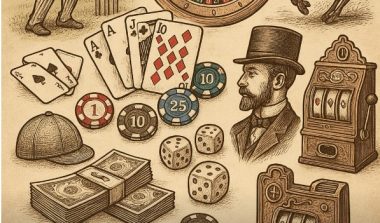
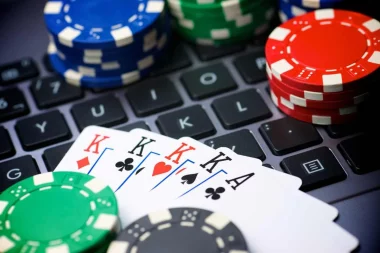


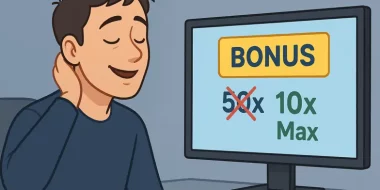

Leave a Reply